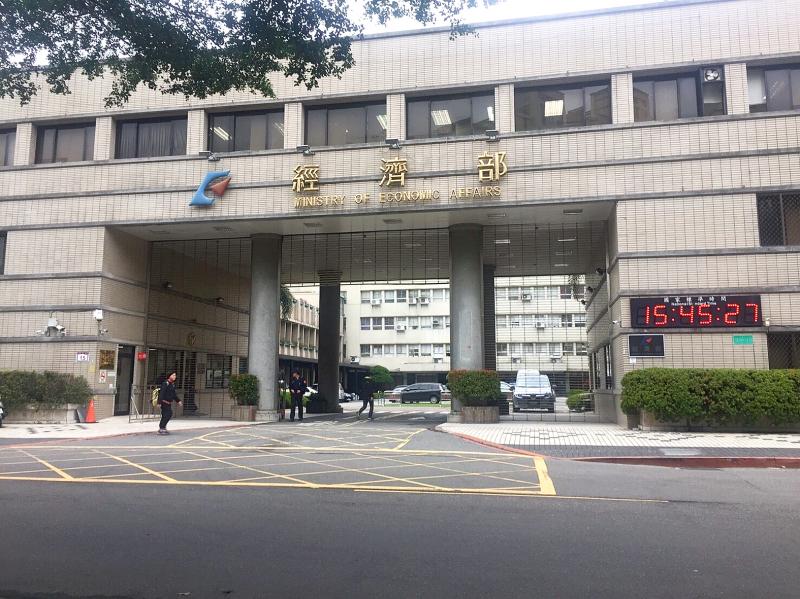The InvesTaiwan Service Center last week approved an application by Sigurd UTC Corp (矽格聯測) to invest NT$2.9 billion (US$103.4 million) to add clean rooms and expand the smart production lines at its plants in the Hsinchu Science Park (新竹科學園區), the Ministry of Economic Affairs said.
The investment by Sigurd UTC, which focuses on chip packaging technology development and wafer testing services, comes as more semiconductor companies are expanding manufacturing capacity thanks to increasing demand.
“A realignment of the global supply chain triggered by US-China trade tensions, opportunities for remote working and distance learning created by the COVID-19 pandemic, and the future of 5G applications are all driving forces in the development of the semiconductor industry,” the ministry said in a statement on Friday.

Photo: Lin Jin-hua, Taipei Times
Sigurd UTC expects the new investment to increase its market share in the semiconductor packaging and testing business, the ministry said, adding that the investment would create 182 job opportunities.
Sigurd UTC was known as UTAC Taiwan Corp (聯測科技) before it was acquired by Sigurd Microelectronics Corp (矽格), which announced the NT$4.62 billion purchase in January and completed the deal in April. In 1995, Singapore’s UTAC Holdings Ltd established UTAC Taiwan as its local chip testing arm.
Sigurd UTC has production facilities at the Hsinchu Science Park and receives orders from integrated device manufacturers, pure-play wafer foundry firms and fabless design firms, the company’s Web site says.
Thanks to the sales revenue contributed by Sigurd UTC, parent company Sigurd Microelectronics on Friday reported consolidated revenue of NT$1.53 billion for last month, up 33.16 percent from a year earlier and its third-highest monthly total, bringing its overall revenue for the third quarter to a record NT$4.68 billion, up 41.95 percent from a year earlier.
Sigurd UTC was one of six local companies that the InvesTaiwan Service Center last week approved to join the government’s three major investment incentive programs, the ministry said.
The center also approved Sushi Express Co Ltd’s (爭鮮) application to invest NT$1.5 billion at the Taichung Industrial Park (臺中工業區), as the conveyor-belt sushi chain operator plans to build a new plant with intelligent production lines, the ministry said, adding that the firm also operates production sites in New Taipei City, Taichung and Kaohsiung.
The others were Asiatic Fiber Corp (豪紳纖維科技), Master Transportation Bus Manufacturing Ltd (成運汽車製造), Janseen Business Co Ltd (至信實業) and Lu Kang Electrify Co Ltd (鹿港電器), the ministry said.
As of Friday, the center had approved 1,015 applications from Taiwanese businesses to invest a total of NT$1.36 trillion through the three incentive programs launched in early 2019, the ministry said.
The incentive programs provide participating companies with assistance for financing, taxation, land, utilities and labor, and the investments pledged so far are expected to generate 115,011 jobs, it said.
Another 52 firms are awaiting approval to invest, it added.

Hon Hai Precision Industry Co (鴻海精密) yesterday said that its research institute has launched its first advanced artificial intelligence (AI) large language model (LLM) using traditional Chinese, with technology assistance from Nvidia Corp. Hon Hai, also known as Foxconn Technology Group (富士康科技集團), said the LLM, FoxBrain, is expected to improve its data analysis capabilities for smart manufacturing, and electric vehicle and smart city development. An LLM is a type of AI trained on vast amounts of text data and uses deep learning techniques, particularly neural networks, to process and generate language. They are essential for building and improving AI-powered servers. Nvidia provided assistance

GREAT SUCCESS: Republican Senator Todd Young expressed surprise at Trump’s comments and said he expects the administration to keep the program running US lawmakers who helped secure billions of dollars in subsidies for domestic semiconductor manufacturing rejected US President Donald Trump’s call to revoke the 2022 CHIPS and Science Act, signaling that any repeal effort in the US Congress would fall short. US Senate Minority Leader Chuck Schumer, who negotiated the law, on Wednesday said that Trump’s demand would fail, while a top Republican proponent, US Senator Todd Young, expressed surprise at the president’s comments and said he expects the administration to keep the program running. The CHIPS Act is “essential for America leading the world in tech, leading the world in AI [artificial

DOMESTIC SUPPLY: The probe comes as Donald Trump has called for the repeal of the US$52.7 billion CHIPS and Science Act, which the US Congress passed in 2022 The Office of the US Trade Representative is to hold a hearing tomorrow into older Chinese-made “legacy” semiconductors that could heap more US tariffs on chips from China that power everyday goods from cars to washing machines to telecoms equipment. The probe, which began during former US president Joe Biden’s tenure in December last year, aims to protect US and other semiconductor producers from China’s massive state-driven buildup of domestic chip supply. A 50 percent US tariff on Chinese semiconductors began on Jan. 1. Legacy chips use older manufacturing processes introduced more than a decade ago and are often far simpler than

Gasoline and diesel prices this week are to decrease NT$0.5 and NT$1 per liter respectively as international crude prices continued to fall last week, CPC Corp, Taiwan (CPC, 台灣中油) and Formosa Petrochemical Corp (台塑石化) said yesterday. Effective today, gasoline prices at CPC and Formosa stations are to decrease to NT$29.2, NT$30.7 and NT$32.7 per liter for 92, 95 and 98-octane unleaded gasoline respectively, while premium diesel is to cost NT$27.9 per liter at CPC stations and NT$27.7 at Formosa pumps, the companies said in separate statements. Global crude oil prices dropped last week after the eight OPEC+ members said they would